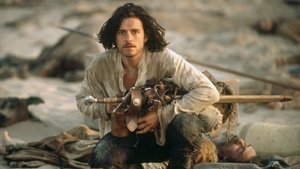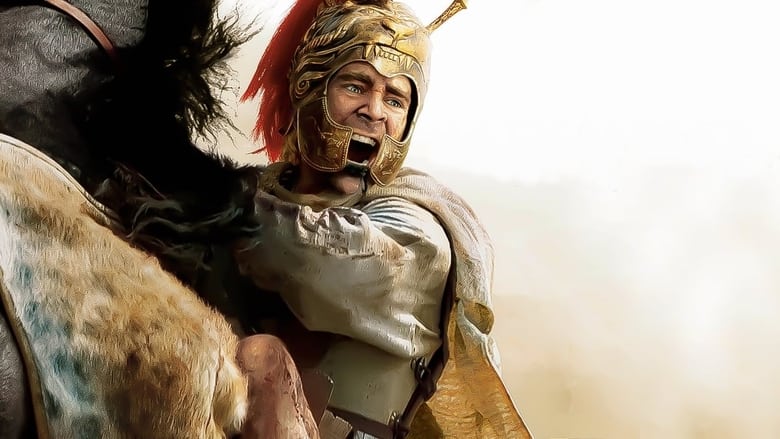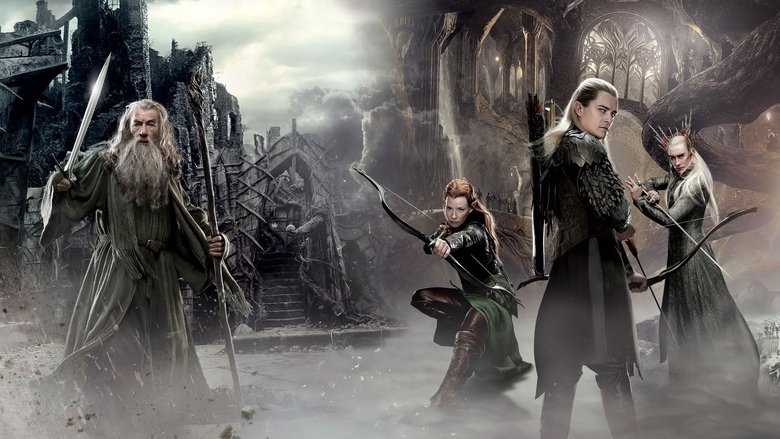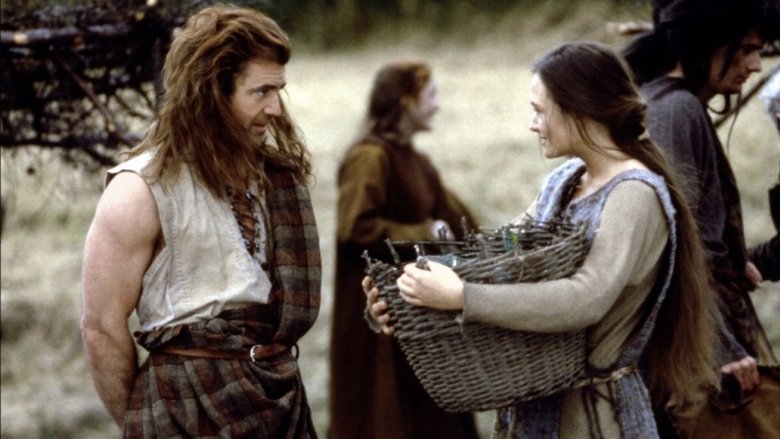The best epic movies that define the genre
Epic movies transport us to grand scales and unforgettable battles, defining the genre with their scope and ambition. These films represent some of cinema's most monumental achievements. Prepare for a journey through history and fantasy.



Epic cinema is defined by its sheer scale, sprawling narratives, and focus on significant historical events or mythological journeys. These films aren't just stories; they are immersive experiences that transport audiences to different eras and worlds, often centered around themes of heroism, conflict, and destiny.
Whether depicting the brutal realities of ancient warfare in films like Gladiator and Braveheart, or crafting intricate fantasy realms as seen in The Lord of the Rings saga, the ambition behind these productions is immense. They often feature thousands of extras, elaborate sets, and groundbreaking visual effects for their time, pushing the boundaries of filmmaking.
What makes these epics endure is their ability to blend massive spectacle with compelling human drama. We connect with the struggles and triumphs of characters fighting for freedom, honor, or the fate of a world. The legacy of these films is undeniable, influencing countless movies and series that followed, proving that audiences continue to be captivated by grand stories told on the biggest possible canvas.
12. Alexander (2004)
Oliver Stone's biographical epic attempts to capture the sweeping, complex life of Alexander the Great. Colin Farrell stars as the legendary conqueror, navigating his turbulent relationship with his mother Olympias (Angelina Jolie) and father King Philip (Val Kilmer), his close bond with Hephaestion (Jared Leto), and his ambitious campaigns across the known world. While the film faced criticism upon release for its pacing and historical accuracy, it features massive battle sequences – particularly the Battle of Gaugamela, which is visually impressive – and attempts to delve into the psychological aspects of Alexander. Multiple versions of the film exist, with later cuts often considered improvements, offering a denser look at this historical figure's epic but brief life.

11. Excalibur (1981)
John Boorman's take on Arthurian legend is a wildly ambitious and visually stunning fantasy epic from the early 80s. It covers the entire saga, from Arthur pulling the sword from the stone to the quest for the Holy Grail and the tragic fall of Camelot. Featuring a cast of then-unknown actors who would go on to become stars (like Liam Neeson, Patrick Stewart, and Helen Mirren), the film is known for its mystical atmosphere, striking cinematography, and bold, often surreal imagery. Using Wagner's music adds to its grand, almost operatic feel. It's a unique, influential, and sometimes challenging interpretation of the classic tale.

10. The Hobbit: The Battle of the Five Armies (2014)
The conclusion to The Hobbit trilogy delivers the massive conflict promised in its title. After Smaug's attack and demise, various armies converge on the Lonely Mountain, vying for the treasure and territory. This film is packed with large-scale battles and individual duels, bringing the dwarves, elves, men, orcs, and eagles together in a chaotic clash. While focusing heavily on action, it also concludes the character arcs, particularly Thorin's descent into dragon-sickness. It provides a bombastic send-off to this prequel saga, tying up loose ends before the events of The Lord of the Rings begin.

9. The Hobbit: The Desolation of Smaug (2013)
The middle chapter of The Hobbit trilogy escalates the adventure as Bilbo, Gandalf, and the dwarves continue their quest towards the Lonely Mountain. This film introduces key characters like the elf Tauriel (Evangeline Lilly) and expands on the role of Legolas (Orlando Bloom), connecting the story more directly to The Lord of the Rings. The barrel escape sequence is a thrilling, action-packed set piece, and the confrontation with Smaug (voiced with chilling menace by Benedict Cumberbatch) inside the mountain is a visual and dramatic spectacle. It pushes the narrative forward, building tension as the company faces dragons, spiders, and angry elves.

8. The Hobbit: An Unexpected Journey (2012)
Peter Jackson returns to Middle-earth with the first installment of The Hobbit trilogy. This film introduces Bilbo Baggins (Martin Freeman) and his reluctant journey with Gandalf (Ian McKellen) and a company of thirteen dwarves led by Thorin Oakenshield (Richard Armitage) to reclaim their homeland from the dragon Smaug. While lighter in tone than The Lord of the Rings, it still features grand landscapes, exciting action sequences, and the signature detailed world-building. The encounter with Gollum and the riddle game is a particular highlight, bridging the gap between the two sagas. It's the beginning of a sprawling adventure filled with trolls, goblins, and unexpected perils.

7. The Last Samurai (2003)
Edward Zwick directs Tom Cruise in this epic set in 19th-century Japan during the Meiji Restoration. Cruise plays a disillusioned American captain who finds himself immersed in the world of the samurai, led by the stoic Katsumoto, played with grace by Ken Watanabe. The film is a beautifully shot exploration of cultural clash and transformation, featuring lush landscapes and meticulously recreated historical settings. The battle sequences are large-scale and impactful, blending traditional sword fighting with modern warfare. It's a story about finding purpose, honor, and belonging in a rapidly changing world, culminating in a powerful and moving final stand.

6. 300 (2007)
Zack Snyder's highly stylized adaptation of Frank Miller's graphic novel is a visceral and visually unique take on the Battle of Thermopylae. Gerard Butler bellows as King Leonidas, leading his small band of Spartan warriors against the colossal Persian army. The film's distinctive look, pulled directly from the comic panels, with its desaturated colors and exaggerated slow-motion action, makes it instantly recognizable. It's less a historical account and more a mythological portrayal of courage and sacrifice against impossible odds. The fight choreography is brutal and balletic, emphasizing the Spartans' legendary fighting prowess. It's a film that ignited countless parodies but remains a singularly bold entry in the epic genre.

5. Troy (2004)
Wolfgang Petersen brings Homer's Iliad to the big screen with this star-studded adaptation of the Trojan War. While it takes significant liberties with the source material and Greek mythology, the film delivers on spectacle. Brad Pitt is captivating as the near-invincible Achilles, and the scale of the armies and city of Troy is immense. The battle scenes are large and chaotic, capturing the brutal hand-to-hand combat of the ancient world. It's a tale of gods, kings, heroes, and the devastating cost of war, driven by themes of fate, honor, and legacy. The final assault on Troy, featuring the infamous wooden horse, is a highlight of the film's ambitious scope.

4. Kingdom of Heaven (2005)
Ridley Scott returns to historical epic with this tale set during the Crusades. Orlando Bloom stars as Balian of Ibelin, a blacksmith who becomes a knight and defender of Jerusalem. While the theatrical cut received mixed reviews, the Director's Cut is widely regarded as a vastly superior and truly epic experience, restoring crucial character development and historical context. The film features stunning cinematography, massive siege sequences, and a complex look at the difficult political and religious climate of the era. It explores themes of faith, duty, and the harsh realities of war with a maturity rarely seen in the genre. The defense of Jerusalem is particularly intense and visually impressive.

3. The Lord of the Rings: The Two Towers (2002)
The central pillar of Peter Jackson's monumental adaptation of Tolkien's saga, The Two Towers deepens the journey into Middle-earth. As the Fellowship is broken, the story splits across multiple thrilling fronts, from the desperate defense of Helm's Deep – a battle sequence that is a masterclass in filmmaking scale and tension – to the arduous trek of Frodo and Sam towards Mordor, guided by the conflicted Gollum (a revolutionary achievement in CGI performance by Andy Serkis). The introduction of Rohan and Fangorn Forest expands the world beautifully. This film truly showcases the epic scale of the war for Middle-earth, bridging the personal quests of the hobbits with the grand conflict engulfing kingdoms. It's a spectacular achievement that builds perfectly towards the trilogy's conclusion.

2. Braveheart (1995)
Mel Gibson's sweeping historical epic is a passionate and brutal portrayal of William Wallace's fight for Scottish freedom. From the rolling green hills to the mud-soaked battlefields, the film paints a striking picture of 13th-century Scotland. Gibson's performance as Wallace is raw and powerful, embodying the spirit of rebellion against overwhelming odds. The battle sequences are visceral and unflinching, pulling you into the chaos and desperation of medieval warfare. It famously took some historical liberties for dramatic effect, but its emotional core resonates deeply. The film won Best Picture at the Oscars, a testament to its impact and scope. Prepare for bagpipes, face paint, and a cry for freedom!

1. Gladiator (2000)
Ridley Scott's masterpiece transports you to the heart of the Roman Empire with an intensity that's simply breathtaking. Russell Crowe delivers an absolutely commanding performance as Maximus, the general turned slave turned gladiator seeking vengeance. The scale of the coliseum battles is immense, groundbreaking for its time, blending practical effects with early CGI to create scenes that still hold up remarkably well today. Did you know the opening battle in the forest was filmed in England and involved real trees being cleared? The attention to historical detail, even with some dramatic liberties, is fantastic, and Hans Zimmer's score is nothing short of iconic, perfectly capturing the film's emotional depth and epic scope. This isn't just a historical drama; it's a powerful story of resilience, honor, and the fight against tyranny. A true modern classic of the epic genre!

